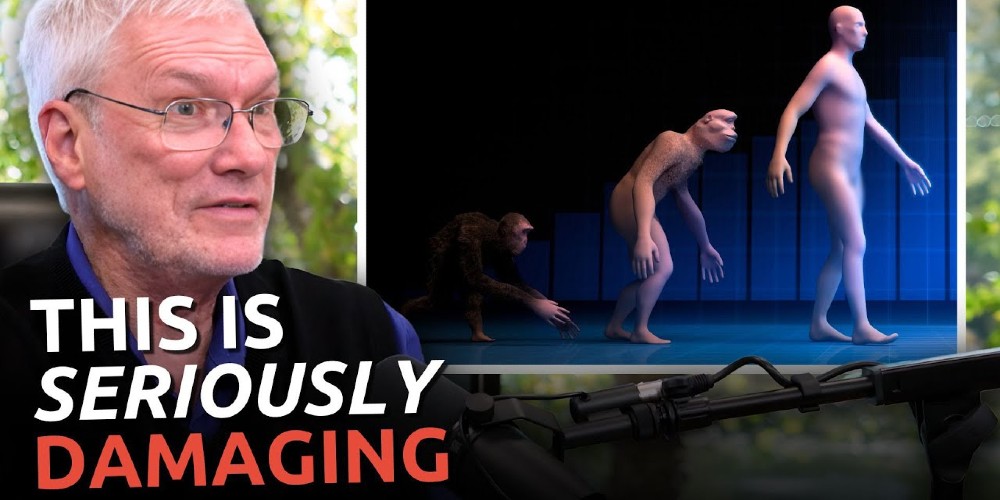Are Christians who accept the concept of millions of years unknowingly supporting atheism? It’s a provocative question, and while it might make some uncomfortable, it’s worth exploring. Let’s take a closer look at where the idea of millions of years came from, how it became intertwined with Christianity, and why it matters so much today.
Where Did the Idea of Millions of Years Originate?
The concept of millions of years didn’t come from the Bible. It emerged in the late 18th and early 19th centuries, developed by individuals rejecting the authority of God’s Word. These were naturalists—those who believed in explaining everything by natural processes, excluding the supernatural. This worldview, known as naturalism, is at its core atheistic because it denies the existence of a personal Creator.
Naturalists during this period sought to explain phenomena like the fossil record without acknowledging events like Noah’s Flood. Observing slow processes, such as sediment accumulation on ocean floors and modern-day erosion, they concluded that the Earth’s layers must have taken millions of years to form. This assumption was rooted in the idea that “the present is the key to the past,” ignoring evidence for catastrophic events that could quickly form layers, such as localized floods.
How Did These Ideas Enter the Church?
Some Christian leaders, perhaps without fully understanding the implications, adopted the idea of millions of years and tried to reconcile it with Scripture. For instance, Thomas Chalmers, founder of the Free Church of Scotland, proposed the Gap Theory. This theory suggests a vast time gap between Genesis 1:1 and 1:2, inserting millions of years into the biblical account of creation.
Later, as evolutionary theory gained traction, Christians began incorporating Darwin’s ideas into their theology. Theistic evolution—the belief that God guided evolutionary processes—became popular. Similarly, when the Big Bang theory emerged, some Christians added it to their understanding of Genesis. These attempts to merge secular ideas with Scripture gave rise to numerous interpretations: the Day-Age Theory, Progressive Creation, and the Framework Hypothesis, to name a few.
What do all these interpretations have in common? They integrate the concept of millions of years—derived from naturalism—into God’s Word. But by doing so, they inadvertently borrow from atheistic thought, diluting biblical authority.
Why This Undermines Biblical Authority
Adding man-made ideas to Scripture creates a dangerous precedent. Once you allow external concepts to reinterpret the Bible, where does it stop? If you insert millions of years into Genesis, why not also reinterpret biblical teachings about marriage, gender, or morality using modern cultural ideas?
This erosion of biblical authority is evident today. Many younger Christians now question foundational biblical teachings, influenced by a culture that elevates man’s ideas over God’s Word. Beliefs about creation, death, and sin are often reshaped to fit secular worldviews, opening the door to further compromise.
Theological Problems with Millions of Years
If Christians accept millions of years, they face significant theological challenges. The fossil record—often cited as evidence for an ancient Earth—shows signs of death, disease, violence, and suffering. But the Bible teaches that death entered creation as a result of sin. Before Adam’s sin, God declared creation “very good.” If the fossil record predates humanity, it suggests death and disease occurred before sin, undermining the gospel message.
The Bible clearly states that death is the penalty for sin and will one day be defeated. Accepting millions of years implies that death and suffering were part of God’s original creation, reducing the gravity of sin and distorting the nature of God’s justice and holiness.
Are Christians Helping Atheism?
Christians who accept millions of years may unintentionally support atheistic naturalism. By adopting ideas rooted in a worldview that excludes God, they validate atheistic interpretations of history and science. This only strengthens the claim that the Bible is unreliable, pushing more people—especially younger generations—away from faith.
In the Old Testament, Israelites often blended pagan beliefs with God’s commands, leading to spiritual destruction. Today, Christians risk making the same mistake by merging naturalistic ideas with Scripture. The consequences are just as serious: a compromised faith and a weakened witness to the truth of God’s Word.
What Does the Bible Say?
The Bible is unambiguous: God created the world in six days. Death, suffering, and disease entered the world through sin. By accepting these truths, Christians uphold the authority of God’s Word and proclaim the gospel message without compromise.
Conclusion
Christians need to consider the implications of accepting millions of years and evolutionary ideas. These beliefs don’t come from Scripture—they come from a worldview rooted in atheism. By integrating them into the Bible, we risk undermining the very foundation of our faith. God’s Word already provides all the answers we need. Let’s trust it from the very first verse.
Video summary generated with the assistance of AI.
It’s becoming increasingly clear that fiat currencies across the globe, including the U.S. Dollar, are under attack. Paper money is losing its value, translating into insane inflation and less value in our life’s savings.
Genesis Gold Group believes physical precious metals are an amazing option for those seeking to move their wealth or retirement to higher ground. Whether Central Bank Digital Currencies replace current fiat currencies or not, precious metals are poised to retain or even increase in value. This is why central banks and mega-asset managers like BlackRock are moving much of their holdings to precious metals.
As a Christian company, Genesis Gold Group has maintained a perfect 5 out of 5 rating with the Better Business Bureau. Their faith-driven values allow them to help Americans protect their life’s savings without the gimmicks used by most precious metals companies. Reach out to them today to see how they can streamline the rollover or transfer of your current and previous retirement accounts.


